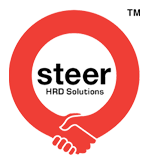Why the HR Round Should Be the Decisive One in Hiring?

Time of recruitment
HR: Sir, I think that candidate does not have the right attitude.
Tech Lead: I don’t know about his attitude but his technical knowledge is the best among all applicants. Let’s hire him.
HR: He will be a misfit. Let’s look further.
Tech Lead: You guys don’t get our pressure. I’m sitting on a deadline. Just get that guy in ASAP.
Many HR professionals might have had similar conversations with people heading operations when looking to hire someone.
One month later
Tech Lead: That guy refuses to adjust shifts! he is unwilling to work on things from scratch! he doesn’t get along too well with the team! What is your training team doing?
HR: At a loss of words….
Tech Lead: You guys don’t get our pressure. I’m sitting on a deadline. Just get that guy trained or out ASAP.
Why did the Teach team and HR face this? Why were their hiring and training efforts wasted?
The answer is the internal conflict within the hiring process. A Tech Lead prioritizes immediate technical knowledge over HR’s concerns about “attitude”. This prioritization results in a bad hire. The employee’s eventual behaviour (lack of flexibility, disengagement, and team conflict) and poor performance shows that technical aptitude does not top organizational incompatibility.
Often, other teams make fun of the seemingly irrelevant questions that HR ask candidates about their goals, strengths, weaknesses and mind-boggling details about family and when was the last time they were stressed. They couldn’t be more wrong! Research from esteemed institutes shows that 85 percent of a person’s success in life depends on his soft skills and only 15 percent on his technical skills. The implication of this data is profound: when the “HR Round,” which is designed to assess these critical soft skills, is treated as a mere formality or screening step, the organization is neglecting the dominant 85% of the success matrix. For recruiting people who perform well, behavioural assessment must be included in the decisive round for hiring.
Here is a what an organisation can do to avoid the situation discussed above:
- Avoid the urgency dilemma:Instead of waiting for urgency-driven hiring, companies should plan for talent acquisition. All critical roles should be staffed before operational pressure points, such as deadlines, come up.
- Shift weightage in interviews:Technical competence must remain a non-negotiable prerequisite, but cultural and behavioural alignment must be given more deciding power. Since attitude and fit are notably more difficult to change post-hire, these factors should be seriously considered during recruitment.
- Design a well thought of HR round:Interviews must move from vague inquiries about goals and weaknesses to highly structured behavioural evaluations. Effective evaluation requires paying attention to how candidates structure their responses, whether they reflect on lessons learned, and how they balance multiple soft skills within a single situation.
We at Steer HRD specialise in bringing about such changes in an organisation. We design the organisation structure and roles, so that hiring can be planned in advance. We help conduct interviews that can clearly tease out those who can fit in your organisation cultures. So, to hire people who perform, get in touch with us!

